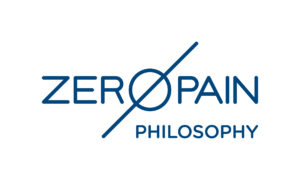Publications
Effect of Age, Breed, and Sex on the Health-Related Quality of Life of Owner Assessed Healthy Dogs
Susan Rodger, E Marian Scott, Andrea Nolan, Andrea K Wright and Jacqueline Reid
Development of a vision impairment score for the assessment of functional vision in dogs: Initial evidence of validity, reliability and responsiveness
Kathleen L. Graham, Jacky Reid, Cameron J. G. Whittaker, Evelyn J. S. Hall, Kelly Caruso, Christina I. McCowan, Andrew White
Creation and validation of the Italian version of the Glasgow Composite Measure Pain Scale-Short Form (ICMPS-SF). Veterinaria Italiana.
Giorgia Della Rocca, Rodolfo Colpo, Jacqueline Reid, Alessandra Di Salvo and E Marian Scott (2018)
Definitive Glasgow acute pain scale for cats: validation and intervention level. The Veterinary Record.
J. Reid, E. M. Scott, G. Calvo, A. M. Nolan. (2018)
Measuring pain in dogs and cats using structured behavioural observation. The Veterinary Journal.
Reid, J., Nolan, A., Scott, M. (2018)
Outcome Measures for Companion Animal Clinical Trials - Choosing the Best of What's Available
Reid J (2017)
Shortening of an existing generic online health-related quality of life instrument for dogs
Reid J, Wiseman-Orr L, and Scott M (2017)
Evaluation of facial expression in acute pain in cats
Holden, E., Calvo, G., Collins, M., Bell, a, Reid, J., Scott, E. M., & Nolan, a M. (2014)
Development, validation and reliability of a web‐based questionnaire to measure health‐related quality of life in dogs. Journal of Small Animal Practice, 54(5), 227-233
Reid, J., Wiseman‐Orr, M. L., Scott, E. M., & Nolan, A. M. (2013)
Optimisation of Scores Generated by an Online Feline Health-Related Quality of Life (HRQL) Instrument to Assist the Veterinary User Interpret Its Results
Vinny Davies, Jacqueline Reid and E. Marion Scott
Proceedings of the 12th International Veterinary Behaviour Meeting
Washington D.C., USA 30th July - 1st August 2019
Development, initial validation and reliability testing of a web-based, generic feline health-related quality-of-life instrument. Journal of Feline Medicine and Surgery.
Noble, C., Wiseman-Orr, L., Scott, M., Nolan, A., Reid, J. (2018)
When is the right time? Veterinary Record, 182, 85-86. dx.doi.org/10.1136/vr.k274
Reid, J., Nolan, A., Scott, M. (2018)
Impact of canine overweight and obesity on health-related quality of life. Preventive Veterinary Medicine
Yam, P. S., Butowski, C. F., Chitty, J. L., Naughton, G., Wiseman-Orr, M. L., Parkin, T., & Reid, J. (2016).
Health-Related Quality of Life Measurement. Handbook of Veterinary Pain Management
Reid, J., Wiseman-Orr, M. L., Nolan, A., & Scott, E. M. (2014)
Development and testing of a novel instrument to measure health-related quality of life ( HRQL ) of farmed pigs and promote welfare enhancement ( Part 1 ). Animal Welfare, 20, 535–548.
Wiseman-Orr, M. L., Scott, E. M., & Nolan, A. M. (2011a).
Development of a questionnaire to measure the effects of chronic pain on health-related quality of life in dogs. American Journal of Public Health, 65(8), 1077–1084.
Wiseman-Orr, M., Nolan, A., Reid, J., & Scott, E. (2004).
Can we really measure animal quality of life? Methodologies for Measuring Quality of Life in People and Other Animals. Animal Welfare, 16(S), 17–24.
Scott, E. M., Nolan, AM., Reid, J., & Wiseman-Orr, M. L. (2007).
Pain assessment in companion animals: an update. In Practice 2017 39: 446-451
Reid, J. Scott, M. Nolan, A. (2017)
Development of a behaviour-based measurement tool with defined intervention level for assessing acute pain in cats. Journal of Small Animal Practice
Calvo, G., Holden, E., Reid, J., Scott, E. M., Firth A., Bell, a., … Nolan, a. M. (2014)
Pain assessment in animals. In Practice (0263841X), 35(2).
Reid, J., Scott, M., Nolan, A., & Wiseman-Orr, L. (2013).
Quality of life is reduced in obese dogs but improves after successful weight loss. The Veterinary Journal, 192(3), 428-434.
German, A. J., Holden, S. L., Wiseman-Orr, M. L., Reid, J., Nolan, A. M., Biourge, V., ... & Scott, E. M. (2012).
Development of the short-form Glasgow Composite Measure Pain Scale (CMPS-SF) and derivation of an analgesic intervention score. Animal Welfare, 16, 97–104
Reid, J., Nolan, A. M., Hughes, J. M. L., Lascelles, D., Pawson, P., & Scott, E. M. (2007).
Validation of a structured questionnaire as an instrument to measure chronic pain in dogs on the basis of effects on health-related quality of life. American Journal of Veterinary Research, 67(11), 1826–1836.
Wiseman-Orr, M. L., Scott, M., Reid, J., & Nolan, A. M. (2006).
Application of a scaling model to establish and validate an interval level pain scale for assessment of acute pain in dogs.
Morton, C. M., Reid, J., Scott, E. M., Holton, L. L., & Nolan, A. M. (2005).
Development and testing of a novel instrument to measure health-related quality of life ( HRQL ) of farmed pigs and promote welfare enhancement ( Part 2 ). Animal Welfare, 20, 549–558.
Wiseman-Orr, M. L., Scott, E. M., & Nolan, A. M. (2011b).

"I have been using VetMetrica for over 18 months now and have found it has revolutionised how I monitor patients and collect data. It is very easy to set up and the tools are intuitive and easy to follow
VetMetrica provides a great window into the animals’ quality of life and how it feels in its home environment. This has enabled me to better care for these patients and also collect good quality data for future publications. I cannot recommend VetMetrica enough. "
Andy Armitage, Greenside Vet Practice

Vetmetrica offers a valuable tool in assessing the impact of chronic pain on quality of life in dogs & cats. When treating chronic pain, most owners say that quality of life is paramount and they want their pet to be pain free. Vetmetrica engages owners and gives them the ability to measure quality of life.

"I found that a computer based scale run by Newmetrica... the same great people who gave us the Glasgow Pain Scales... is a wonderful way to get reliable quality of life scores. You can find it here at http://www.newmetrica.com/vetmetrica-hrql/. It generates a non-biased decision using a computer algorithum. Answers are weighted differently so it is harder for the caregiver to subconsciously manipulate the outcome. And they cannot go back and change their answers like they can on paper form" Dr Mike Petty

“Firstly I want to congratulate you and your team on the important work you are doing in the field of pain assessment and in particular the NewMetrica HRQL tool which I think is a real game changer!” – Leon Warne.



